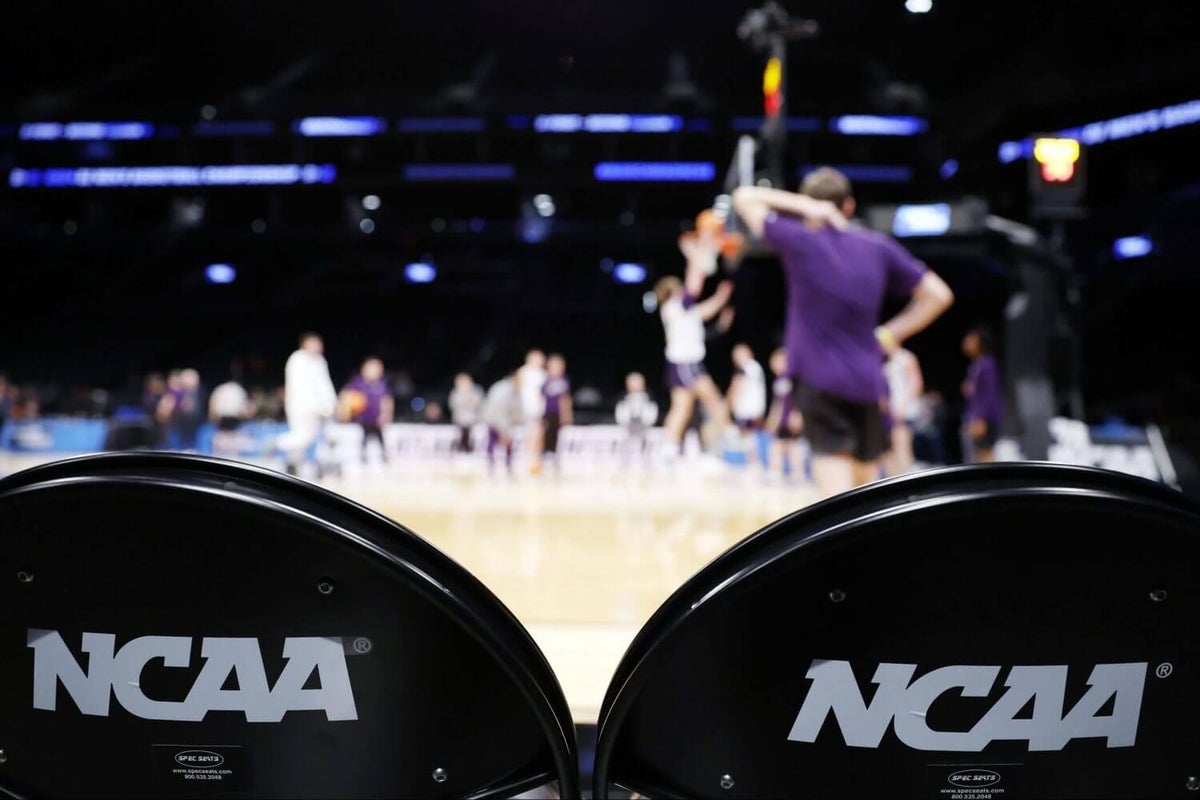The NCAA said Thursday it is investigating 13 Division I men’s basketball players at six schools — including Temple and Arizona State — for alleged violations of gambling rules and failing to cooperate with investigators.
The association said allegations vary in each case but include athletes betting on and against their own teams, sharing information to be used by bettors and knowingly manipulating scoring or game outcomes.
No athletes were identified, but the NCAA did say that none of them are currently enrolled at their previous schools.
The other schools mentioned were Eastern Michigan, New Orleans, Mississippi Valley State and North Carolina A&T, but the NCAA stressed the investigation is focused solely on athletes. Schools and staff members have not been alleged to be involved in violations.
“Arizona State University is aware of the NCAA investigation and outcome related to a former student-athlete who is no longer enrolled at ASU,” the school said in a statement. “The university cooperated fully with all inquiries, and was not implicated in any way.”
It is unclear whether any players involved have transferred and enrolled at other schools, though NCAA policy is to inform institutions if an athlete on one of its teams is facing a possible eligibility issue.
The NCAA said it was releasing this information because of extensive public reporting on the cases. It added additional cases are in various stages of the investigation process but did not include any details or specifics.
The cases do appear to be related.
Federal prosecutors have linked a widespread college basketball gambling scheme to the NBA as well and are investigating whether it is tied to the Department of Justice investigation into Jontay Porter, the former Toronto Raptors center who manipulated his own performance to help others win money on his over/under prop bets. Miami Heat guard Terry Rozier has also been under investigation in relation to this scheme.
Porter was banned by the NBA and pled guilty to one federal charge of wire fraud conspiracy. Four others were charged (and three have pled guilty), and another was arrested and is in plea negotiations with the government but has not been charged. At least five colleges have been investigated by the FBI for its ties to that gambling scheme. That investigation has been run by the US District Attorney’s Office for the Eastern District of New York.
The NCAA is working independently on these rules violation cases. A timetable for the investigations to conclude was not given.
On Wednesday, the NCAA announced three men’s basketball players had been banned for betting on their own games and “manipulating” performances to alter outcomes. Two players were from Fresno State and the other from San Jose State, though they had all at one point been together at Fresno State. A person familiar with that investigation has told The Athletic there was no evidence the Fresno State case was linked to investigations the NCAA acknowledged on Thursday.
College sports leaders have been trying to adapt to the new era of pervasive, legalized gambling on sporting events in recent years. Nearly 40 states permit wagering on sporting events, and the online gambling industry has exploded. The NCAA and conference work closely with watchdog companies that monitor legal sportsbooks for unusual and potentially illegal activity.
“The NCAA monitors over 22,000 contests every year and will continue to aggressively pursue competition integrity risks such as these,” NCAA President Charlie Baker said in a statement. “I am grateful for the NCAA enforcement team’s relentless work and for the schools’ cooperation in these matters. The rise of sports betting is creating more opportunity for athletes across sports to engage in this unacceptable behavior, and while legalized sports betting is here to stay, regulators and gaming companies can do more to reduce these integrity risks by eliminating prop bets and giving sports leagues a seat at the table when setting policies.”
The NCAA has proposed loosening restrictions around legal wagering to allow college athletes to bet on professional sports. A proposal will be considered this fall.
Currently, athletes or those who work for athletic departments cannot bet on any sports — professional or amateur — that are sponsored by the NCAA. Even if rules are loosened, athletes would still be banned from wagering on their own teams or sports.
The NCAA has also pushed for a ban on prop bets, which are wagers made on individual players based on statistics accumulated in a game. Experts say those types of wagers are especially susceptible to manipulation.
(Photo: Sarah Stier / Getty Images)

